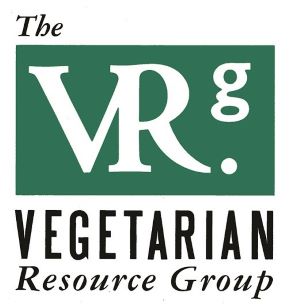Do International Dietary Guidelines Promote Vegan/Vegetarian Diets?
By Reed Mangels, PhD, RD
Many countries, including the United States, have dietary guidelines. These guidelines provide advice to people about what they should eat and also form the basis for national nutrition policy. Ideally, these recommendations would include information about vegan and vegetarian diets and substitutes for animal-based foods. Including this information could promote changes that would make people’s food choices healthier and more sustainable. A recent report examined the dietary guidelines from 100 countries and assessed whether these guidelines included statements about vegetarian/vegan diets and about plant-based alternatives to dairy products and meat. This report also evaluated whether international dietary guidelines included statements about plant-based diets. This report defined plant-based diets as “a wide spectrum of dietary patterns which emphasize plant products, such as fruits and vegetables, whole grains, legumes, nuts and seeds, and plant-based alternatives and limit or exclude animal-derived products.”
The report stated that 40% of the dietary guidelines that were analyzed contained a position statement about vegetarian/vegan diets. Most of these positions were neutral. Instead of promoting or discouraging a vegetarian/vegan diet, they provided advice on meeting needs for some nutrients (such as iron and vitamin B12) from plant sources or supplements. Some dietary guidelines highlighted the health benefits of vegetarian/vegan diets; eight guidelines described the environmental benefits of plant-based diets. About 8% of dietary guidelines highlighted the risks of vegetarian/vegan diets and about 4% advised against vegan diets.
Plant-based alternatives to meat were mentioned in 38% of guidelines, alternatives to cow’s milk in 37% of guidelines, and alternatives to other dairy products in 13% of guidelines.
The report’s authors noted that of the 100 countries they examined, “47 had a purely animal-based meat food group, which may include eggs. This gives meat a special status by implying that it should be an essential part of a healthy diet.” They concluded, “Removing the special status of meat as a single food group would send a powerful signal to citizens that we need to reduce meat consumption for our own health and the health of the planet.” Additionally, 75 out of the 100 countries that were analyzed, had a purely animal-based dairy food group and did not mention any plant-based alternatives to cow’s milk or dairy products. The authors recommended that more countries follow the example of Canada’s dietary guidelines which lists animal- and plant-based foods together under the name “protein group” in place of a “meat” or “dairy” group.
The authors also called on countries to include more information about meeting nutritional needs with plant foods since many people worldwide, cannot afford animal-based foods and avoid/limit use of dairy products due to lactose intolerance. Less than a quarter of countries included information about obtaining vitamin B12 from supplements or fortified foods in their dietary guidelines.
The report ended with this statement:
“with global planetary and human health goals and targets falling short, it is more important than ever to ensure that FBDGs [food-based dietary guidelines] promote sustainable healthy food choices. This includes recommendations to eat fewer animal products and fostering plant-based diets and plant-based alternatives as part of their positions and food groups. Policy makers, civil society actors, and economic agents have to use all available tools to promote more sustainable, healthy, and equitable consumption patterns. FBDGs that encourage balanced food choices are also more inclusive in that they consider ethical, ecological, religious, and economic aspects that play roles in people’s everyday lives.”
Reference:
Klapp AL, Feil N, Risius A. A global analysis of national dietary guidelines on plant-based diets and substitutions for animal-based foods. Curr Dev Nutr. 2022;6(11):nzac144.
To read more about dietary guidelines see:
2020-2025 Dietary Guidelines for Americans Released
The Vegetarian Resource Group Testimony on the Dietary Guidelines
The Vegetarian Resource Group Sends in Testimony Regarding the 2020 Dietary Guidelines

